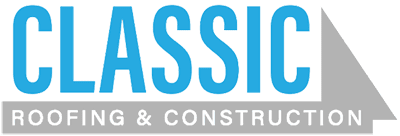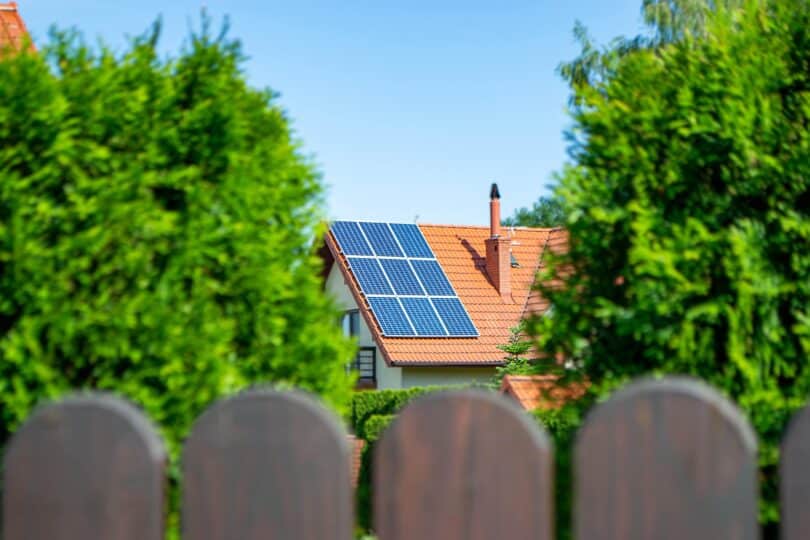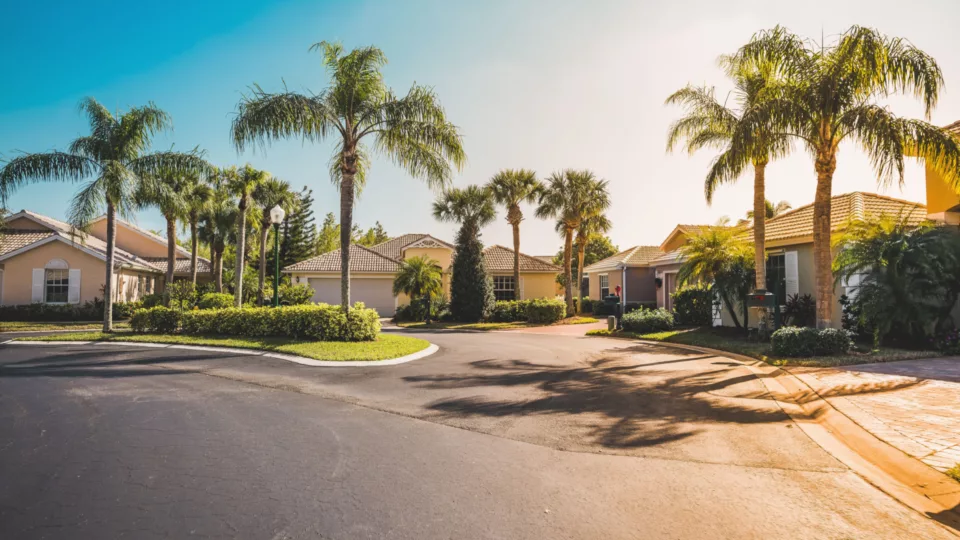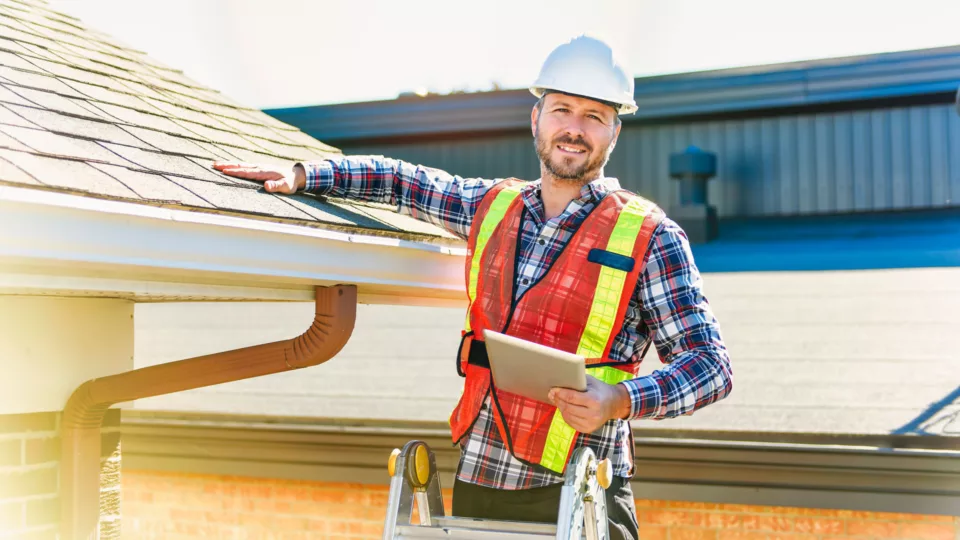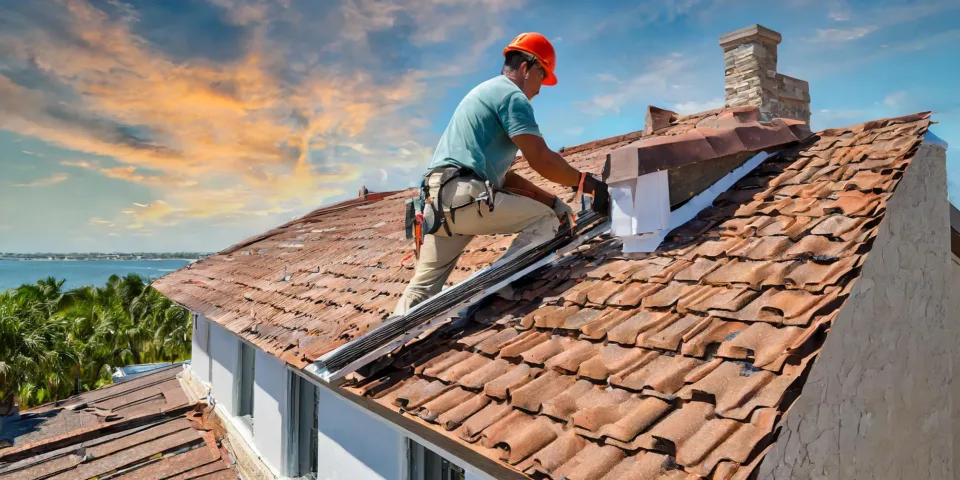In This Article
Florida homeowners enjoy sunshine, warm weather, and beautiful coastlines year-round, but those perks come at a cost. The state’s intense climate presents unique challenges for residential roofs. From UV exposure to hurricane-force winds, roofs in Florida face more stress than in most other regions of the country. That’s why regular roof inspections and maintenance aren’t just recommended—they’re essential.
In this blog, we’ll dive deep into why roof inspections matter, what Florida homeowners should look out for, and how proper maintenance can extend your roof’s lifespan and save you money.
Why Roof Inspections Are Critical in Florida
Harsh Weather Conditions
Florida’s weather is both a blessing and a curse. While sunny days are abundant, so are torrential rains, high humidity, and the occasional hurricane. These environmental factors can degrade roofing materials over time:
- UV Rays: Constant sun exposure weakens roofing materials, causing cracking and fading. Over time, shingles may become brittle, leading to a higher chance of leaks and blow-offs.
- Heavy Rain: Florida’s rainstorms can cause water intrusion if the roof has weak spots. Saturated roofing systems can lead to mold, mildew, and structural wood rot.
- Wind Damage: Strong winds from tropical storms or hurricanes can lift or damage shingles. Even if shingles don’t completely detach, lifted edges allow water to seep in.
- Salt Air: Coastal homes deal with salt corrosion, which can impact both metal roofs and roof fasteners. This can cause rust, loosening hardware, and structural degradation over time.
Hurricane Season Readiness
From June to November, Florida braces for hurricane season. Roof inspections before and after major storms help identify vulnerabilities or damages. Regular inspections ensure:
- Secure shingles and flashing that won’t blow off in high winds
- No existing leaks that storms could worsen, protecting your interior
- Proper documentation for insurance claims to support any needed repairs
Hurricanes can cause immediate, visible damage and also create unseen issues that develop over time. Catching and correcting them early is key to maintaining your home’s safety and value.
Signs You Need a Roof Inspection
Visible Signs
- Missing, cracked, or curling shingles: Obvious signs of deterioration or wind damage.
- Water stains or discoloration on ceilings: Can indicate an active leak from the roof.
- Algae or moss growth on the roof surface: These growths retain moisture, weakening the shingle structure and promoting rot.
Subtle Indicators
- Unexplained spikes in energy bills: Could point to poor attic insulation or ventilation linked to roof problems.
- Shingle granules accumulating in gutters: A sign that your shingles are aging and losing their protective coating.
- Rusted flashing or loose nails around roof components: Small issues that can escalate into larger repairs if left unaddressed.
Event-Based Triggers
- After a hurricane or severe storm: Especially important in Florida where storms can be frequent and severe.
- When buying or selling a property: A roof in poor condition can reduce a home’s value or delay the sale.
- If you’ve noticed leaks or indoor water damage: Don’t wait—these symptoms can worsen quickly.
What Happens During a Roof Inspection?
A professional roof inspection typically includes:
Exterior Assessment
- Checking shingles, vents, flashing, and gutters for damage or wear
- Identifying signs of weathering, deterioration, or structural movement
- Ensuring all components are properly sealed and fastened
Interior/Attic Inspection
- Looking for water stains, mold, poor insulation, or roof deck damage
- Checking for proper airflow and insulation
- Identifying pests or animal entry points which can also compromise your roof
Advanced Tools (Optional)
- Drone Inspections for large or hard-to-reach roofs provide a bird’s eye view of the entire roofing system
- Infrared Scanning to detect hidden moisture beneath the surface that isn’t visible to the naked eye
Roof inspections are more thorough and revealing than most homeowners realize. A quality contractor will provide a full report, photographs, and recommendations.
Benefits of Regular Roof Maintenance
Prolongs Roof Lifespan
In Florida, roofs can wear out faster due to constant exposure to sun and rain. Maintenance helps identify and resolve small issues before they lead to early roof replacement. A well-maintained roof can last 20-30 years or more, depending on the material.
Prevents Costly Repairs
Ignoring small leaks or minor damage can result in major repairs down the line, especially when the next storm hits. Repairing a few damaged shingles now is far less expensive than replacing a water-damaged roof deck and ceiling drywall later.
Improves Energy Efficiency
Properly maintained roofs help with attic ventilation and insulation, reducing energy bills and keeping your home cooler during Florida’s sweltering summers. Your HVAC system won’t have to work as hard, reducing energy consumption and prolonging its lifespan.
Supports Insurance Claims
Many Florida insurance providers require annual roof inspections. Up-to-date inspection reports can make claims easier and faster after storm damage. They serve as proof that the roof was in good condition prior to an event.
Enhances Property Value
A home with a well-maintained roof is more attractive to potential buyers. It reassures them that the property has been cared for and won’t require immediate investment.
Recommended Maintenance Schedule for Florida Roofs
Twice-Yearly Inspections
- Pre-Hurricane Season (April to June): Ensure everything is secured and damage-free before severe weather hits.
- Post-Hurricane Season (October to November): Assess any damage caused by summer storms and prepare for cooler months.
Storm-Specific Inspections
- Schedule an inspection after any major tropical storm or hurricane. Look out for hidden damage that can take weeks to show symptoms.
Gutter and Debris Cleaning
- Clear out gutters and roof valleys regularly to prevent water pooling and roof rot. Florida’s abundant foliage can clog drainage fast.
Additional Tips
- Trim tree branches that hang over your roof to prevent damage from falling limbs.
- Install roof coatings or sealants to provide extra protection against UV rays and moisture.
Common Roofing Issues in Florida
Moisture and Mold
High humidity makes mold and mildew growth more likely in attics and under shingles. These growths not only damage materials but also pose health risks to occupants.
Algae and Moss Growth
These thrive in Florida’s humid conditions and can deteriorate shingles and underlayment. They also trap moisture, speeding up roof degradation.
Wind Damage
Even moderate tropical storms can cause roof blow-offs, shingle displacement, or structural weaknesses. Loose shingles can act like sails, catching wind and peeling back surrounding materials.
UV and Heat Damage
Heat causes expansion and contraction in roofing materials, which can lead to cracks, blisters, and curling. Over time, this repeated stress reduces the roof’s effectiveness and lifespan.
Pests and Wildlife
Rodents, birds, and insects often try to enter homes through the roof. They can tear through underlayment or insulation, causing unseen damage.
DIY vs. Professional Maintenance
What Homeowners Can Handle:
- Visually inspect for missing shingles or clogged gutters
- Clear off debris like leaves and branches
- Check attic for visible signs of water damage or mold
Why Hire a Professional:
- Safety: Professionals are trained and equipped for roof access
- Accuracy: Experts can identify hidden or subtle damage
- Tools: Use of specialized technology for precise diagnostics
- Compliance: Professional reports help satisfy insurance and regulatory requirements
Attempting major repairs yourself can lead to mistakes that worsen the damage or void warranties. Always consult a licensed roofing contractor for anything beyond basic cleaning and visual checks.
Choosing the Right Florida Roofing Company
Credentials to Look For:
- State-licensed and insured contractors with a valid Florida license number
- Experience with Florida-specific roofing needs and materials like metal, tile, and asphalt shingles
- Positive reviews and a strong local reputation; ask for references and look for verified testimonials
Key Questions to Ask:
- “Do you offer hurricane preparedness inspections?”
- “Are you familiar with Florida Building Code standards?”
- “Do you offer annual maintenance programs?”
- “What warranties do you provide for repairs and replacements?”
Hiring a reputable, local roofing company ensures familiarity with regional challenges and gives you peace of mind when weather events hit.
Need a roof inspection? Our certified Florida roofing experts are here to help. Schedule your Free Roof Inspection today and get your home hurricane-ready with our tailored Roof Maintenance Plans. Contact us now for a consultation and take the first step toward protecting your home from Florida’s toughest elements.
